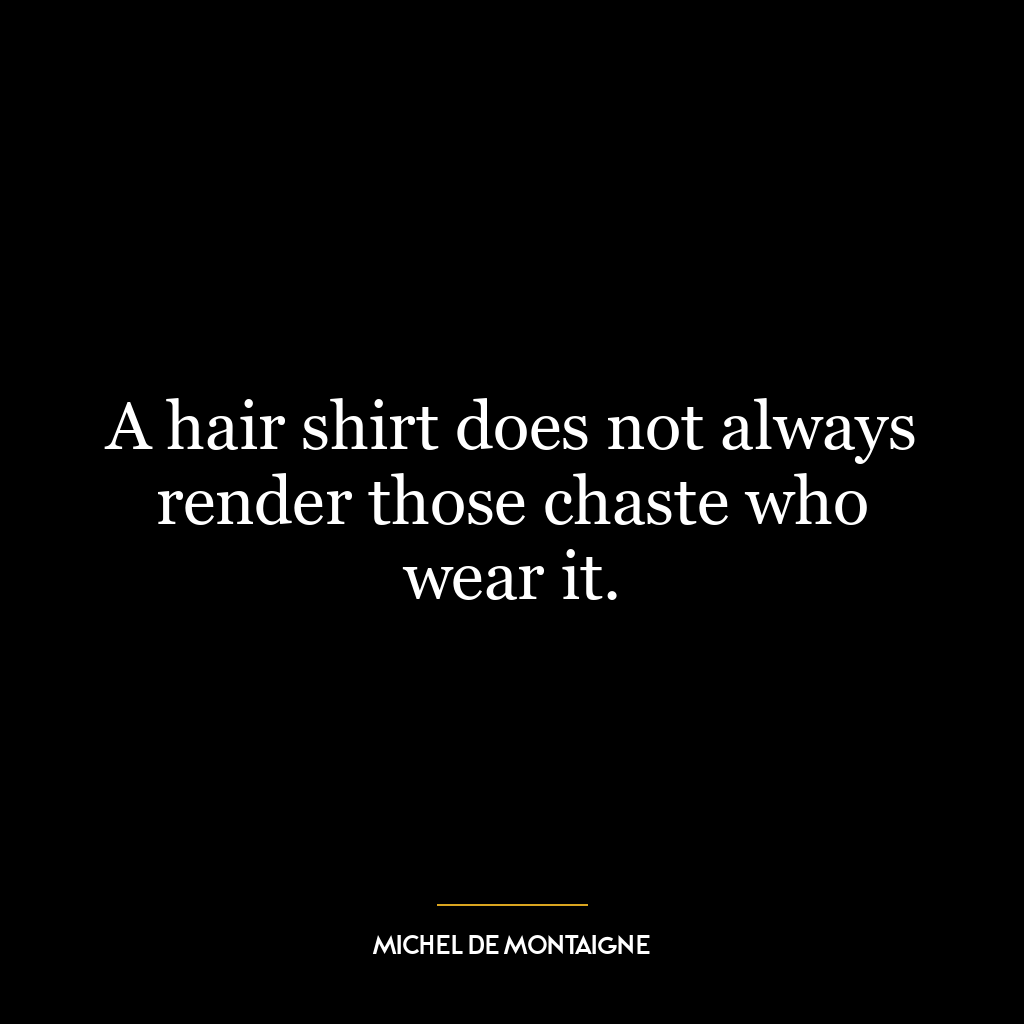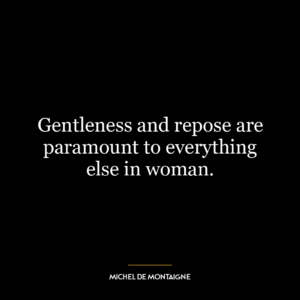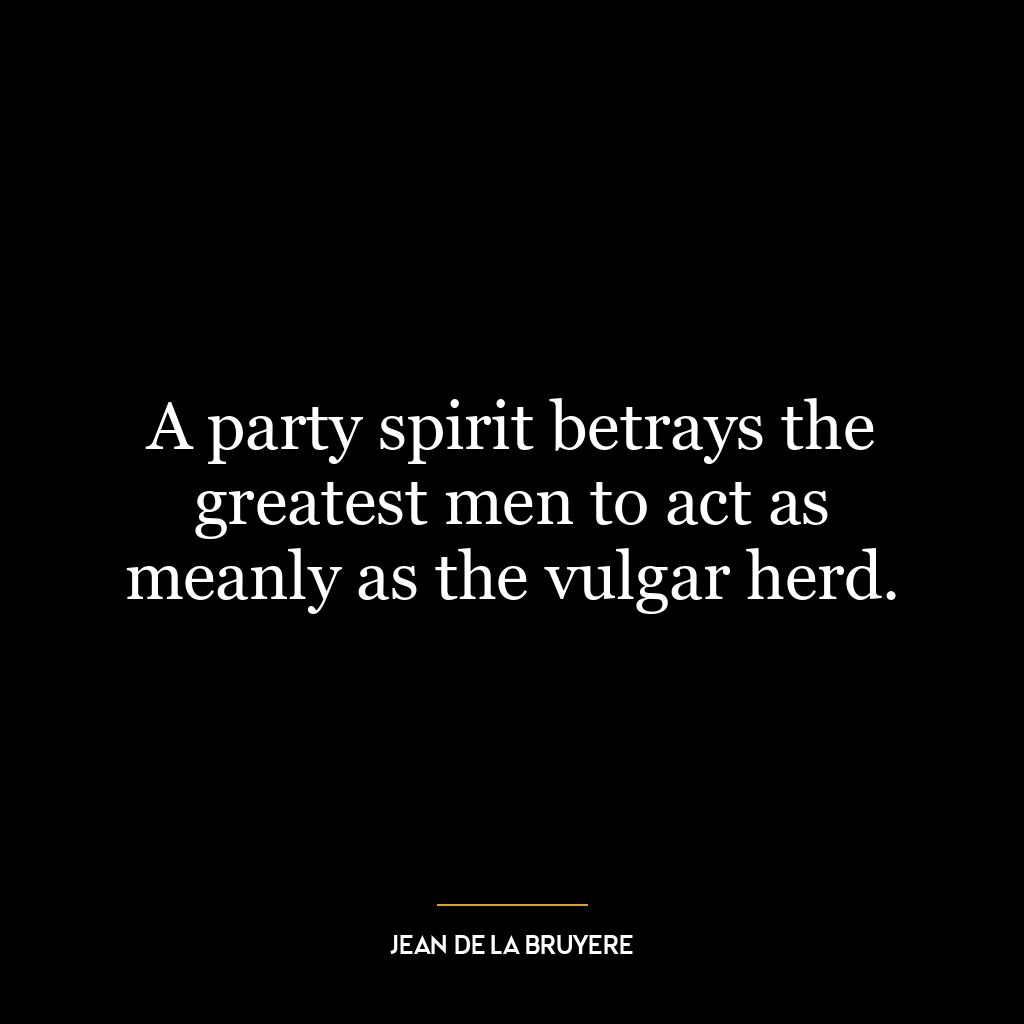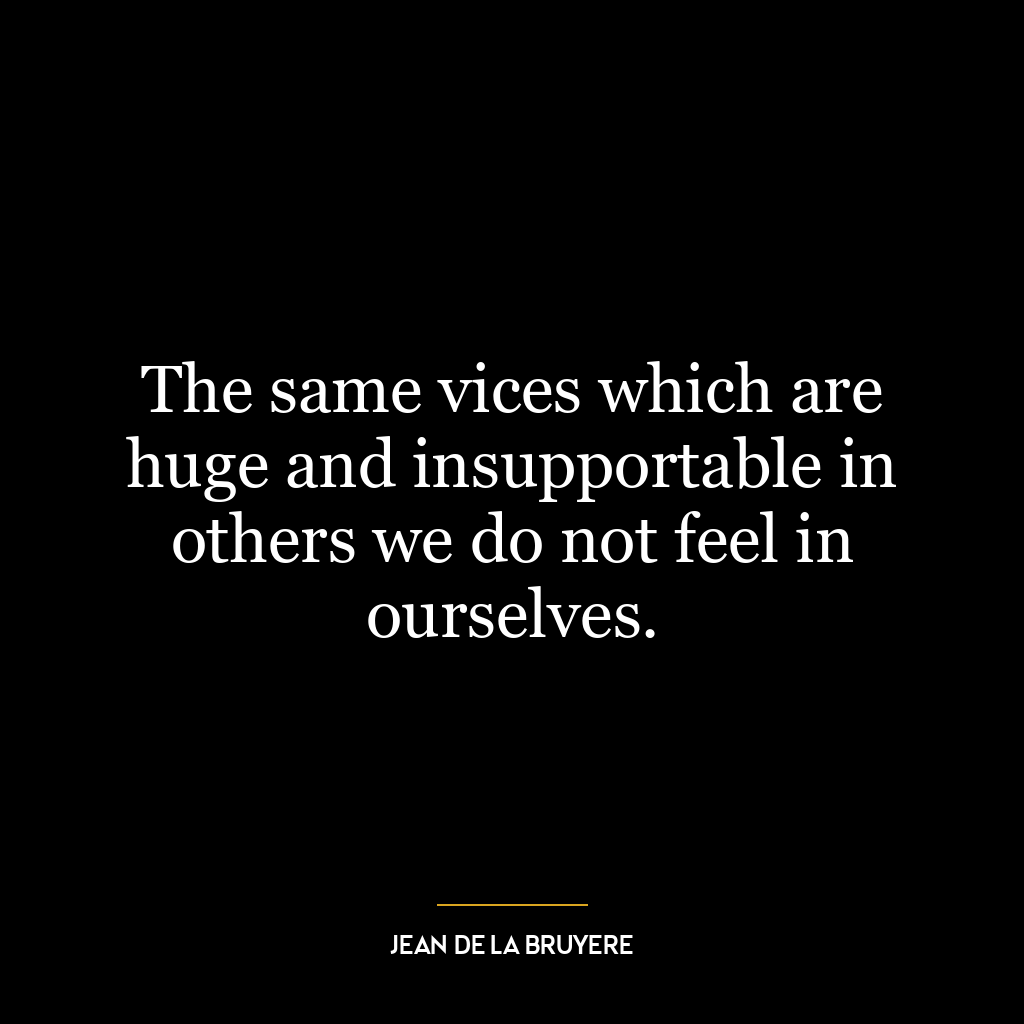A hair shirt does not always render those chaste who wear it.
The quote, “A hair shirt does not always render those chaste who wear it,” is a metaphorical statement that carries profound implications about human behavior and personal development. A hair shirt refers to a garment made from coarse animal hair, worn by religious devotees in the past as an expression of penance or mortification – an uncomfortable reminder of their commitment to purity and self-denial.
In essence, Montaigne is saying that just because someone outwardly displays symbols or behaviors associated with virtue (such as chastity), it doesn’t necessarily mean they embody that virtue internally. The hair shirt represents any external signifier of morality or goodness – it could be a religious symbol, a title, an act of charity, etc. However, wearing this ‘shirt’ or adopting these signifiers doesn’t automatically bestow upon the person the virtues they represent.
This idea can be applied in today’s world where people often mistake appearance for substance. For instance, consider social media influencers who promote wellness and positivity but may themselves struggle with mental health issues privately; or politicians who advocate for policies they don’t personally adhere to; even companies that tout sustainability while engaging in harmful environmental practices.
In terms of personal development, this quote serves as a reminder not to rely solely on outward appearances or actions to define one’s character but instead focus on cultivating genuine internal values. It encourages introspection and authenticity over hypocrisy and pretense; true change comes from within rather than imposed external factors.
Moreover, this quote also brings attention to the danger of judging others based solely on their outward appearances. Just as wearing a hair shirt doesn’t necessarily make someone chaste; likewise someone’s outer display shouldn’t be taken as proof of their inner character which might be quite different from what is publicly displayed.















